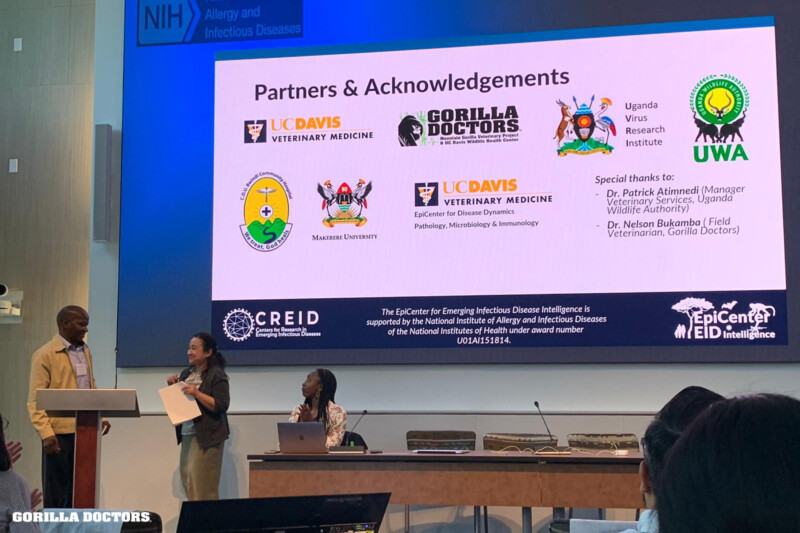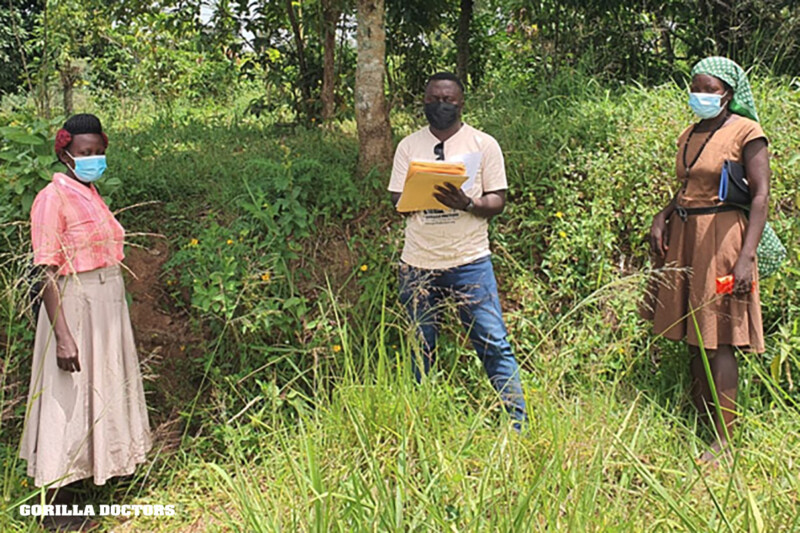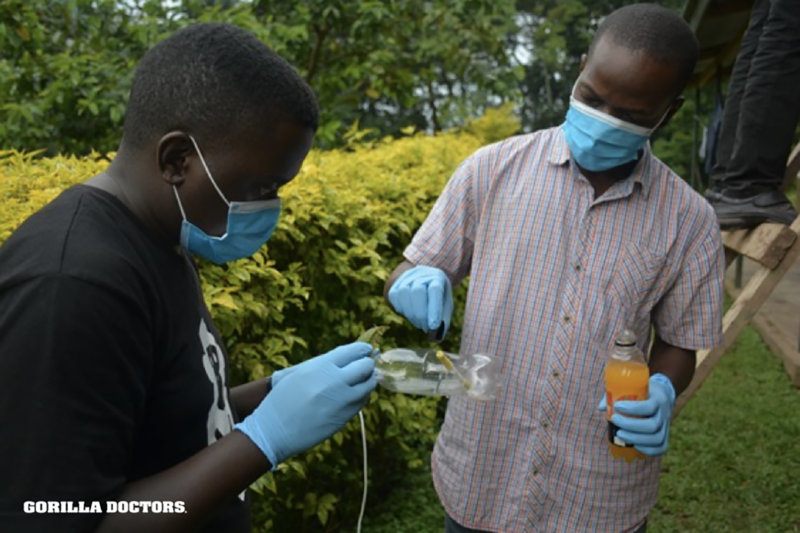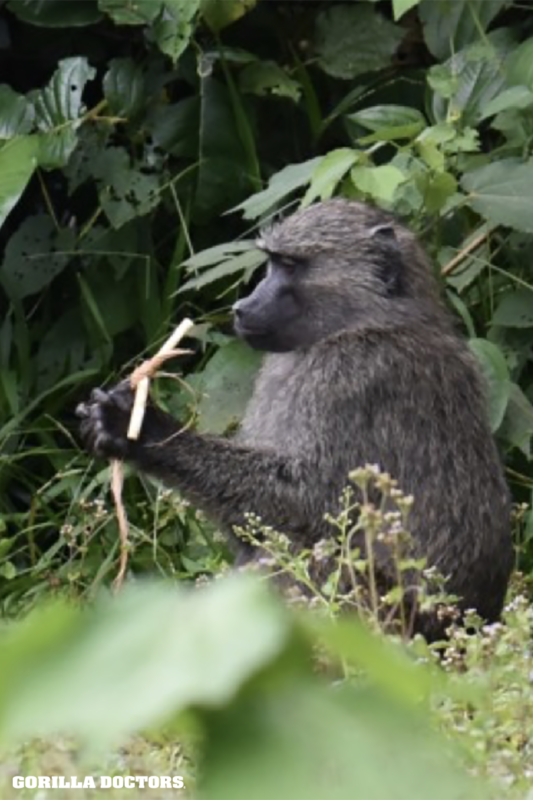Gorilla Doctors Goes to Washington
By Gorilla Doctors Staff on Tuesday, August 1st, 2023 in Blog.In June our Ugandan Head Veterinarian, Dr. Benard Ssebide, and our Chief Veterinary & Scientific Officer, Dr. Tierra Smiley Evans, traveled to the headquarters of the National Institutes of Health just outside of Washington, DC to attend the Centers for Research in Emerging Infectious Diseases (CREID) Network meeting and present on Gorilla Doctors’ research and outbreak response work on emerging infectious diseases in Uganda.

Dr. Benard Ssebide, head veterinarian, Uganda presents at the National Institutes of Health CREID meeting in Washington, DC. June 2023. © Gorilla Doctors
Sudan Ebolavirus Outbreak – Uganda
Dr. Benard presented recent ecological findings from the Sudan Ebolavirus outbreak in Uganda that began in September 2022 and was declared officially over in January 2023. Gorilla Doctors was part of a national task force in Uganda to study the potential wildlife origins of the outbreak that killed at least 55 people. In collaboration with the Uganda Wildlife Authority, Dr. Benard and his team first performed a detailed survey investigating households where some of the first cases were detected as well as interviewed close community members about their contact with wildlife. This information helped identify potential leads for the zoonotic (animal) origin of this outbreak.

Dr. Nelson Bukamba, project veterinarian, Uganda conducts interviews with communities. © Gorilla Doctors
The CREID Network
The (CREID) Network is a coordinated group of emerging infectious disease research centers strategically situated in regions around the globe where emerging and re-emerging infectious disease outbreaks have a high likelihood of occurrence. The goal of this global network is to prospectively develop a framework and infrastructure to enable quick and effective responses to future outbreaks.
Gorilla Doctors has been leading wildlife surveillance efforts for one of the ten centers for research in emerging infectious diseases, the Epicenter for Emerging Infectious Disease Intelligence (EEIDI) based at the One Health Institute at the University of California, Davis School of Veterinary Medicine.
Wildlife surveillance involves humanely collecting biological samples from wildlife to screen for evidence of infection with pathogens, such as Ebolavirus. By sampling wildlife that live in close proximity to humans and gorillas, we aim to detect and reduce the risk of those pathogens transferring from wildlife to humans or gorillas and causing disease outbreaks.

Dr. Nelson and field assistant Dilly Muhumuza soak dental rope in fruit juice in preparation for wildlife sampling. © Gorilla Doctors

Baboon chews on fruit juice-soaked rope – the rope will be dropped and then collected for sampling saliva. © Gorilla Doctors
Participation in this network exemplifies Gorilla Doctors’ commitment to taking a proactive One Health approach to emerging infectious diseases known to impact humans and to have the potential to impact eastern gorillas. Through this effort, the Gorilla Doctors Uganda team collects biological samples from bats, other primate species that share habitats with gorillas, and mosquitoes to screen for pathogens that could emerge in human or gorilla populations. We do this by taking a ‘landscape-based’ approach – sampling across environments that range from pristine forest to urban areas, allowing us to better understand environmental drivers of pathogen transmission. Gorilla Doctors also serves as the ‘eyes and ears’ on the ground in Uganda, ready to detect and respond to new outbreaks – just like when the Sudan Ebolavirus emerged in Uganda in 2022.


 Donate
Donate